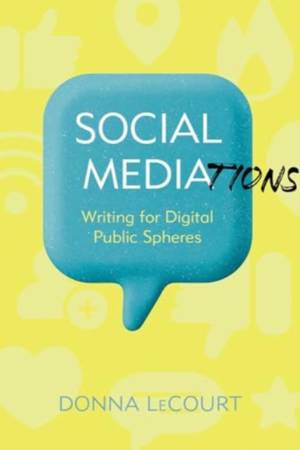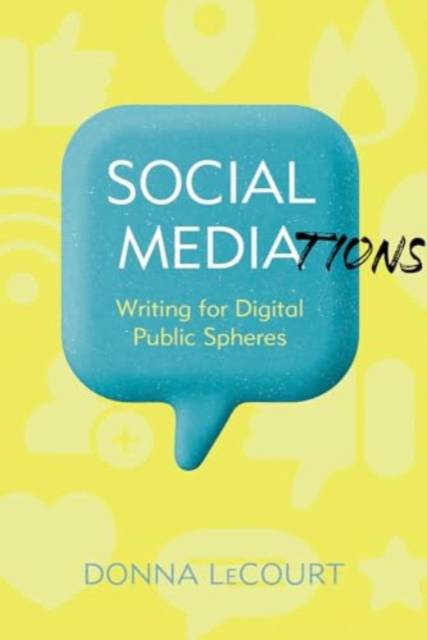
Door een staking bij bpost kan je online bestelling op dit moment iets langer onderweg zijn dan voorzien. Dringend iets nodig? Onze winkels ontvangen jou met open armen!
- Afhalen na 1 uur in een winkel met voorraad
- Gratis thuislevering in België vanaf € 30
- Ruim aanbod met 7 miljoen producten
Door een staking bij bpost kan je online bestelling op dit moment iets langer onderweg zijn dan voorzien. Dringend iets nodig? Onze winkels ontvangen jou met open armen!
- Afhalen na 1 uur in een winkel met voorraad
- Gratis thuislevering in België vanaf € 30
- Ruim aanbod met 7 miljoen producten
Zoeken
Omschrijving
Rhetoric and composition scholar Donna LeCourt combines theoretical inquiry, qualitative research, and rhetorical analysis to examine what it means to write for the "public" in an age when the distinctions between public and private have eroded. Public spaces are increasingly privatized, and individual subjectivities have been reconstructed according to market terms. Part critique and part road map, Social Mediations begins with a critical reading of digital public pedagogies, then turns to developing a new theory that can guide a more effective writing pedagogy. LeCourt offers a theory based in embodied relationality that uses information economies to develop public spheres. She highlights how information commodities generate value through circulation, orchestrate relationships among people, and support unequal power structures. By demonstrating how we can use information capital for social change rather than market expansion, writers and readers are encouraged to seek out encounters with cultural and political impact.
Specificaties
Betrokkenen
- Auteur(s):
- Uitgeverij:
Inhoud
- Aantal bladzijden:
- 240
- Taal:
- Engels
- Reeks:
Eigenschappen
- Productcode (EAN):
- 9780822948179
- Verschijningsdatum:
- 18/06/2024
- Uitvoering:
- Hardcover
- Formaat:
- Genaaid
- Afmetingen:
- 150 mm x 218 mm
- Gewicht:
- 476 g

Alleen bij Standaard Boekhandel
+ 167 punten op je klantenkaart van Standaard Boekhandel
Beoordelingen
We publiceren alleen reviews die voldoen aan de voorwaarden voor reviews. Bekijk onze voorwaarden voor reviews.











